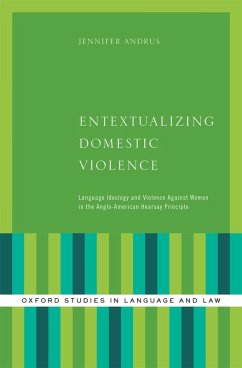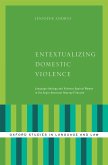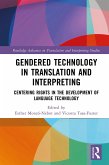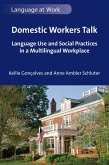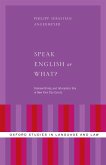Language ideology is a concept developed in linguistic anthropology to explain the ways in which ideas about the definition and functions of language can become linked with social discourses and identities. In
Entextualizing Domestic Violence, Jennifer Andrus demonstrates how language ideologies that are circulated in the Anglo-American law of evidence draw on and create indexical links to social discourses, affecting speakers whose utterances are used as evidence in legal situations. Andrus addresses more specifically the tendency of such a language ideology to create the potential to speak for, appropriate, and ignore the speech of women who have been victims of domestic violence. In addition to identifying specific linguistic strategies employed in legal situations, she analyzes assumptions about language circulated and animated in the legal text and talk used to evaluate spoken evidence, and describes the consequences of the language ideology when it is co-articulated with discourses about gender and domestic violence. The book focuses on the pair of rules concerning hearsay and its exceptions in the Anglo-American law of evidence. Andrus considers legal discourses, including statutes, precedents, their application in trials, and the relationship between such legal discourses and social discourses about domestic violence. Using discourse analysis, she demonstrates the ways legal metadiscourses about hearsay are articulated with social discourses about domestic violence, and the impact of this powerful co-articulation on the individual whose speech is legally appropriated. Andrus approaches legal rules and language ideology both diachronically and synchronically in this book, which will be an important addition to ongoing research and discussion on the role legal appropriation of speech may have in perpetuating the voicelessness of victims in the legal treatment of domestic violence.
Dieser Download kann aus rechtlichen Gründen nur mit Rechnungsadresse in A, B, BG, CY, CZ, D, DK, EW, E, FIN, F, GR, HR, H, IRL, I, LT, L, LR, M, NL, PL, P, R, S, SLO, SK ausgeliefert werden.
Hinweis: Dieser Artikel kann nur an eine deutsche Lieferadresse ausgeliefert werden.

